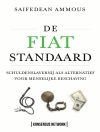Corporate governance, the internal policies and leadership that guide the actions of corporations, played a major part in the recent global financial crisis. While much blame has been targeted at compensation arrangements that rewarded extreme risk-taking but did not punish failure, the performance of large, supposedly sophisticated institutional investors in this crisis has gone for the most part unexamined. Shareholding organizations, such as pension funds and mutual funds, hold considerable sway over the financial industry from Wall Street to the City of London. Corporate Governance Failures: The Role of Institutional Investors in the Global Financial Crisis exposes the misdeeds and lapses of these institutional investors leading up to the recent economic meltdown.
In this collection of original essays, edited by pioneers in the field of fiduciary capitalism, top legal and financial practitioners and researchers discuss detrimental actions and inaction of institutional investors. Corporate Governance Failures reveals how these organizations exposed themselves and their clientele to extremely complex financial instruments, such as credit default swaps, through investments in hedge and private equity funds as well as more traditional equity investments in large financial institutions. The book’s contributors critique fund executives for tolerating the ‘pursuit of alpha’ culture that led managers to pursue risky financial strategies in hopes of outperforming the market. The volume also points out how and why institutional investors failed to effectively monitor such volatile investments, ignoring relatively well-established corporate governance principles and best practices.
Along with detailed investigations of institutional investor missteps, Corporate Governance Failures offers nuanced and realistic proposals to mitigate future financial pitfalls. This volume provides fresh perspectives on ways institutional investors can best act as gatekeepers and promote responsible investment.
Tabla de materias
1 Introduction
—James P. Hawley, Shyam J. Kamath, and Andrew T. Williams
2 Beyond Risk: Notes Toward a Responsible Investment Theory
—Steve Lydenberg
3 The Quality of Corporate Governance Within Financial Firms in Stressed Markets
—Robert Mark
4 Chasing Alpha: An Ideological Explanation of the Catastrophic Failure in the U.K.’s Financial Services Industry
—Philip Augar
5 Corporate Governance, Risk Analysis, and the Financial Crisis: Did Universal Owners Contribute to the Crisis?
—James P. Hawley
6 Great Expectations: Institutional Investors, Executive Remuneration, and »Say on Pay»
—Kym Sheehan
7 Against Stupidity, the Gods Themselves Contend in Vain: The Limits of Corporate Governance in Dealing with Asset Bubbles
—Bruce Dravis
8 Real Estate, Governance, and the Global Economic Crisis
—Piet Eichholtz, Nils Kok, and Erkan Yonder
9 The Sophisticated Investor and the Global Financial Crisis
—Jennifer S. Taub
10 The Role of Investment Consultants in Transforming Pension Fund Decision Making: The Integration of Environmental, Social, and Governance Considerations into Corporate Valuation
—Eric R. W. Knight and Adam D. Dixon
11 Funding Climate Change: How Pension Fund Fiduciary Duty Masks Trustee Inertia and Short-Termism
—Claire Woods
Notes
List of Contributors
Index
Acknowledgments
Sobre el autor
James P. Hawley, Shyam J. Kamath, and Andrew T. Williams are professors of economics and business at Saint Mary’s College of California. Hawley is Director of the Elfenworks Center for the Study of Fiduciary Capitalism. Kamath is Associate Dean and Director of Global, Executive Development, and Research Programs and author of The Political Economy of Suppressed Markets. Hawley and Williams are coauthors of The Rise of Fiduciary Capitalism: How Institutional Investors Can Make Corporate America More Democratic, also available from the University of Pennsylvania Press.












